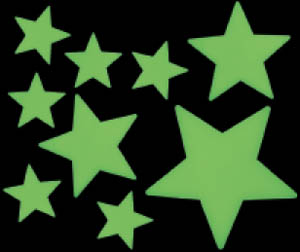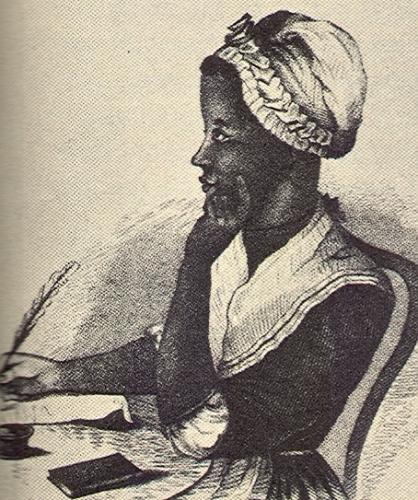 |
LITR 4231 Early American
Literature Sample Research Posts 2014 (research post assignment) Research Post 2 |
 |
Zach Thomas
4/20/14
Creation Stories as Your Beginning
I want to focus on creation stories in this post and how we inevitably
have a creation story that has made us who we are or has put us on a trajectory
of where we will be going. Not to be completely religious here, but I have grown
up in the protestant church all my life. What I have seen as far as creation
stories has been just one, the Genesis story. The other creation story I saw
there was not written down, yet it was people’s lives being changed from who
they were at said time into who they are now. Again, I want to address that I
will not converse about Christianity because I want to focus on people as a
creation story. Remember in high school when we believed we knew what we’d do
for the rest of our lives? Being a student now with a wife and daughter never
crossed my mind at that time, yet it is exactly what I take pride in to be in
this situation. So I want to focus on answering this question to some degree:
with creation stories in mind, do people find themselves assimilating to their
culture’s expectancy for their life, or do they tend to break through the veil of
a collectivistic culture into an individualistic one?
Creation stories begin to develop when we are small and see how our
parents operate. Mostly we hear and adhere to the rules set in place by them,
but also receive a trajectory to where we should end up as far as school and
salary. With all that being said, we scramble together a story that defines who
we are based on our upbringing and to please our parents. Dan P. McAdams states
it like this, “even before we consciously know what a story is, we are gathering
material for the self-defining story we will someday propose” (13). In this
class, we have discussed in detail several creation stories that all have a
common thread: that being that almost all the explorers who had this creation
story had to begin with them assimilating to the culture. Without this
uneasiness and fear of what to expect, these explorers would have little to
write about a specific people group without actually being a part of their day-to-day life. So to some, the assimilation into one’s culture is a beautiful
thing that can be to honor their parents and reflect a sense of admiration to
their original intent their parents had for their life.
Despite what the culture may unload on us, there are also others who
will break away from their parents’ will for their life and focus on finding
their true self apart from their parents' consent. Not to go into complete
specifics, but this occurred in the Genesis story when Adam and Eve chose to eat
of the fruit of the tree to defy God. “Learning is that entire process whereby,
consciously or otherwise, we are forever trying to ‘make meaning’ out of our
existence and ‘make something’ out of our lives” (Randall intro). So learning
outside out of a parent’s house can look completely different than being under
it. Gordon Wheeler says it this way about our individual story: “your paradigm,
in other words, is the story behind the story: not the landscape itself you look
out on, so much as the lens you use to look through, and the ground you stand on
to hold up that lens, in order to be able to see anything at all” (12). There
are many factors that determine your individual story that are beneficial to
that creation story we have spoken of. We can see clearly that this growing
individual nature breeds progress, responsibility, character, and determination
to overcome obstacles. So for the rugged individual, there is plenty to be
regarded of highly.
Creation stories presumably are created at a very young age, but what’s
interesting is that individuals can rewrite their creation stories when they
step into the real world on their own accord. Cabeza de Vaca did it best in my
opinion. He came to America a definite and rugged individual looking to explore
the New World. By the time he got back home to Spain, though, he had survived by
his assimilation into the Native American culture. So we see that his first
creation story involved his view of the New World and the beauty of its
landscape, then we move to a more morose second creation story when he has to
learn through the grit and mire, the essentials to life as a Native American.
Giberson and Yerxa explain what culture places on creation stories: “they are
expected to account for generally accepted explanation of the origins of the
visible universe, the genesis of human life, the sources of social and moral
order, and the grounding of meaning” (1-2). Culture and the individual have
different perspectives of what creation stories mean, yet they do coincide in
the areas of the future. It is interesting to learn that creation stories unpack
a world of anticipation for the one with a fresh start.
Creation stories tend to fluctuate with the one who undergoes the change.
There is much to say about creation stories being the drive behind any
individual who wants to progress in a specific field. At one point in our life
though, the individual’s trajectory for life will meet with that of their
culture’s trajectory. There is definitely a strong push that culture and
families can place on a child that could influence their future career. Creation
stories are essential also in knowing a person or a group. We take time to get
to know people that are our friends, but it helps to know their creation story
in order to see where they have come from that beginning. These stories
influence the birth of religions and social movements. Whether these creation
stories influence an individual to step out in a completely new direction or
whether they influence a person to come under the authority of their culture,
creation stories are essential to the relationships we grow in and help create a
new story that has never been unraveled before.
Works Cited
Giberson, Karl, and Donald A. Yerxa. "The Modern Creation Story." Species of
origins: America's search for a creation story. Lanham, Md.: Rowman &
Littlefield, 2002. . Print.
McAdams, Dan P.. "Introduction." The stories we live by: personal myths and
the making of the self. New York, N.Y.: W. Morrow, 1993. . Print.
Randall, William . "Introduction." The Stories We Are: An Essay on Self
Creation. . Reprint. Toronto: University of Toronto Press, 2014. . Print.
Wheeler, Gordon. Beyond individualism: toward a new understanding of self,
relationship, & experience. Cambridge, MA: GICPress ;, 2000. Print.
|
|
|
|

